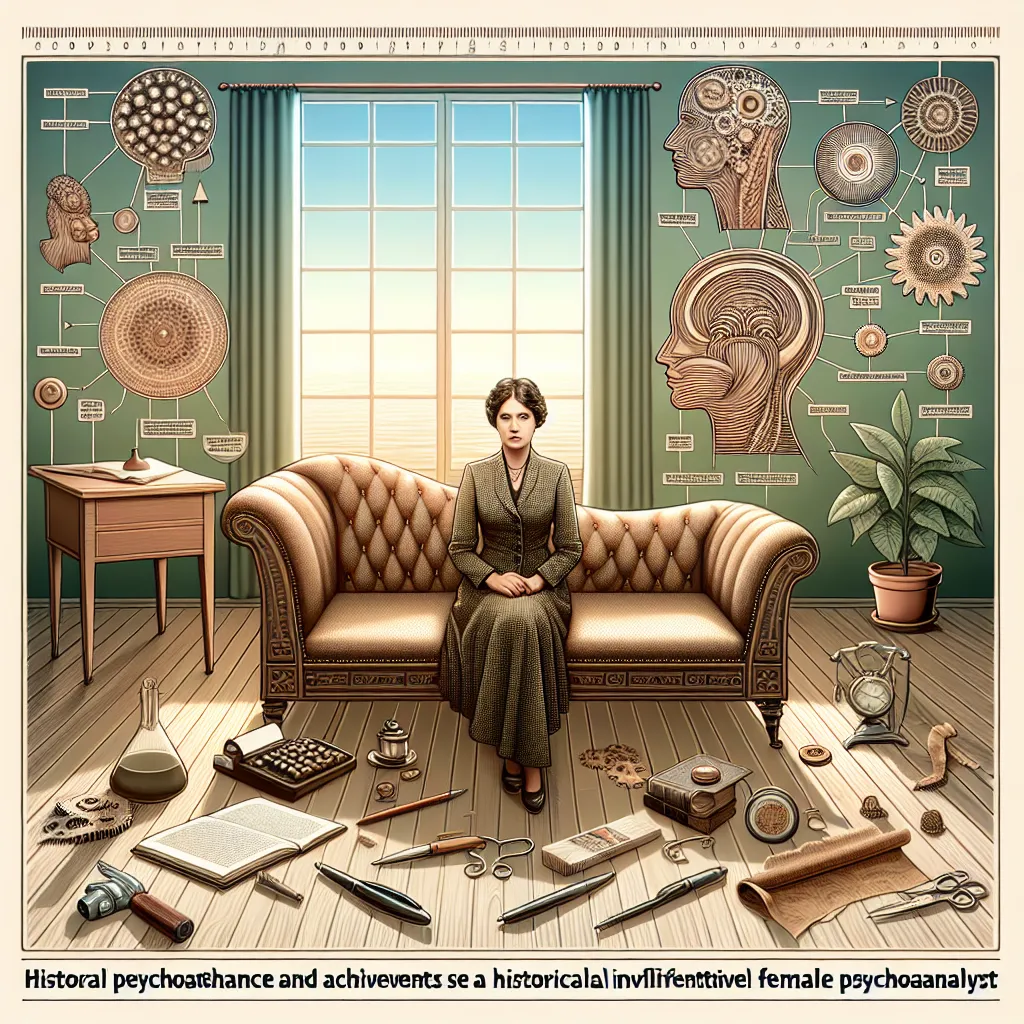Anna Freud, the youngest daughter of Sigmund Freud, the founder of psychoanalysis, was a pioneer in her own right within the field of child psychoanalysis. Born on December 3, 1895, in Vienna, Austria, Anna Freud’s contributions to the field have carved out a lasting legacy, significantly influencing both theoretical and clinical aspects of psychotherapy and child development. Her life’s work revolved around understanding and helping children with psychological difficulties, and her innovative theories have continued to impact the landscape of psychological treatment for children and adolescents.
Anna Freud began her career under the shadow of her father but quickly emerged as a prominent and independent thinker. After receiving formal education in the field of teaching, Anna shifted her focus towards psychoanalysis, primarily child psychology, where she developed her own theories and treatment techniques. Her dedication to the pediatric field led to the establishment of new standards for the dynamic and psychoanalytic treatment of children, emphasizing the importance of considering developmental factors.
One of Anna Freud’s most significant contributions was the concept of defense mechanisms, which she introduced in her seminal book “The Ego and the Mechanisms of Defense” (1936). In this book, Freud outlined the ways in which the ego defends itself against unwanted impulses and anxieties. Her detailed examination of defense mechanisms such as repression, projection, and reaction formation enriched the understanding of the human psyche and became integral to psychological practice.
In the wake of the rise of Nazism and the ensuing political turmoil in Europe, Anna Freud and her family were forced to flee Austria. They settled in London, where Anna continued her psychoanalytic work and established the Hampstead Child Therapy Course and Clinic in 1952, which later became the Anna Freud National Centre for Children and Families. This institution, where she served as director until her death, is a testament to her commitment to providing support for children and families struggling with mental health challenges.
Anna Freud’s influence extended beyond her written work and clinical practice. She was instrumental in the application of psychoanalytic principles to education and childcare. She argued for the importance of understanding child development to create supportive educational environments that cater to the emotional and psychological needs of children. Furthermore, she was a foremost advocate for the welfare of children whose lives were disrupted by war, emphasizing the psychological impact of such trauma.
Annually, the Anna Freud Centre organizes a lecture to commemorate her lasting contributions to the field of child psychoanalysis and therapy. Adhering to her pioneering spirit, the Centre continues to integrate research, clinical practice, and policy to support and improve the mental health of children and young adults.
Throughout her life, Anna Freud also maintained an active role in the psychoanalytic community, serving on various committees and societies. She was a founder of the Hampstead Clinic, which later became the Anna Freud Centre, an important focus for child psychoanalytic training and research. Her involvement in this institution demonstrated her enduring dedication to educating future psychoanalysts.
Anna Freud was an influential figure within the British Psychoanalytical Society and played a pivotal role in the establishment of the International Psychoanalytical Association’s (IPA) developmental lines approach. Her work has been a foundational component in psychoanalytic child development theory and has influenced the evolution of the practice worldwide.
In the arena of legal theory and child welfare, Anna Freud’s work helped shape the “best interests” principle that now drives child custody decisions and legal frameworks around children’s rights. By emphasizing the psychological wellbeing of the child in legal matters, her ideas have been instrumental in ensuring that the emotional needs of children are considered in the justice system.
Anna Freud’s death on October 9, 1982, marked the end of an era, but her legacy remains vibrantly alive. The field of child psychoanalysis and the broader understanding of child psychology still rest on the sturdy foundations she established. Additionally, her work on defense mechanisms continues to influence contemporary psychology, offering insights into the unconscious processes that shape human behavior.
Anna Freud’s contributions to psychoanalysis extend to her role as a historian and archivist of her father’s work, maintaining his legacy while forging her own path. Her achievements have been formally recognized in various ways, including her appointment as an Honorary Fellow of the Royal College of Physicians in London and her influence continues to be felt in the ongoing work of the Anna Freud National Centre for Children and Families.
In summary, Anna Freud’s life and legacy are marked by her unwavering commitment to advancing the understanding and treatment of the psychological world of children. Her groundbreaking theories and therapeutic advancements laid the foundation for modern child psychoanalysis and the comprehensive care of children’s mental health. Through her visionary ideas, tireless clinical work, and educational initiatives, Anna Freud has left an indelible mark on the fields of psychology, psychotherapy, and child welfare, ensuring that her contributions will continue to benefit society for generations to come.



Leave a Comment